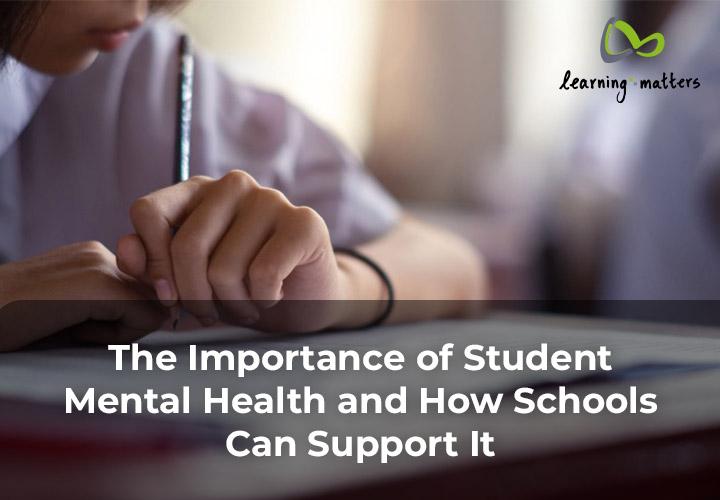Mental well-being is a crucial aspect of one's overall health and wellness, and this holds true for students as well. As young ones and teens face the hurdles of growing up, they may encounter challenges to mental health such as worries, sadness, and tension, that can severely affect their daily routine. Hence, it becomes extremely important for educational institutions to give importance to the mental wellness of students and extend aid to those who require it.
Why is student mental health important?
The mental wellness of students is significant as it has a direct impact on their academic success. When students face mental health challenges, they may face difficulties in many areas of life including the ability to focus, pay attention,, self-confidence and self-esteem, as well as maintaining relationships with family and peers. These issues, in turn, cause them to lag academically which, if not supported at the outset, can mushroom into large-scale challenges.
How can schools support student mental health?
There are several steps schools can take to support student mental health, including:
-
Educating staff and students: By educating and training teachers and all non-teaching staff about mental well-being, educational institutions can help remove the social stigma and lack of awareness attached to it and thus encourage students to seek assistance whenever they feel the need.
-
Building a supportive environment: Schools can cultivate a positive and welcoming atmosphere that enables and motivates staff and students to bring forward issues in a safe and supportive environment that supports mental and psychological wellness.
-
Making resources and care accessible: Educational institutions can ensure that students have access to mental health facilities and resources, such as therapy and counseling, and offer referral services to mental health providers in the community.
-
Boosting self-care and awareness: Educational institutions should be able to pass on healthy coping mechanisms and techniques for stress management, such as meditation, and physical exercise.
-
Assisting teachers: Teachers have a crucial role in identifying students who may be facing mental health challenges and connecting them with the necessary support. Educational institutions can offer professional growth opportunities and resources to aid teachers in comprehending and aiding student mental well-being. Teachers are the first line of defense and must be equipped very well to play this role efficiently.
In summing up, the mental health of students is a significant part of their overall health and happiness, which has a direct effect on their academic achievements. It is imperative for schools to give due importance to this and take the required steps to ensure that a positive environment for mental well-being is nurtured within the premises.


Comments